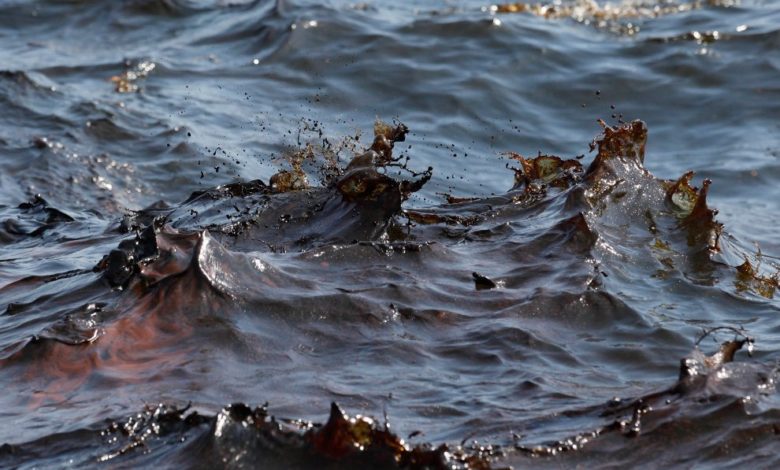Mystery surrounds oil spill washing up on Israel and Lebanon’s shores

The oil slick plaguing Israel’s shoreline has spread north, washing up on beaches across southern Lebanon.
The perpetrators of the oil spill remain shrouded in mystery however as a court in Haifa made the surprise decision yesterday to place a seven-day gagging order on the investigation into the spill that has washed up on more than 100 km of Israel’s shores.
The court put out the order after some Israeli news outlets reported the name of a ship suspected of dumping the oil.
Sometimes these spills are like trying to figure out who farted in a crowded room
Environmental protection minister Gila Gamliel said that the ministry is investigating the possibility that the pollution – believed to be about 1,000 tonnes of bunker fuel – was carried out purposely for malicious reasons.
“They either spilled the oil from the ship into the water or a malfunction occurred and they didn’t report it,” said Gamliel. “Finding those responsible for the disaster is a complicated process, but we will do everything in our power to find those culpable.”
Israeli authorities are working with European officials to review satellite images of ships that passed through the area.
The European Union monitors the location of oil slicks in the Mediterranean using information from a network of weather satellites.
Scientists can then use ocean current and weather data to track the source of the tar that washed up along Israel’s coastline.
Gamliel said over the weekend that nine ships that were in the area at the time were being looked at. Nevertheless, finding the culprit will not be easy.
One well-known US-based ship tracker told Splash today on condition of anonymity: “Sometimes these spills are like trying to figure out who farted in a crowded room.”
On Sunday, the ministry urged Israelis to stay away from the beaches, citing serious health hazards posed by the tar.
Deposits of tar have started washing up in southern Lebanon, including at two marine protection sites.
Caretaker Lebanese prime minister Hassan Diab has asked the defence and environment ministers to follow up and said the government was “acting accordingly to repair the damage caused by the leakage”.
